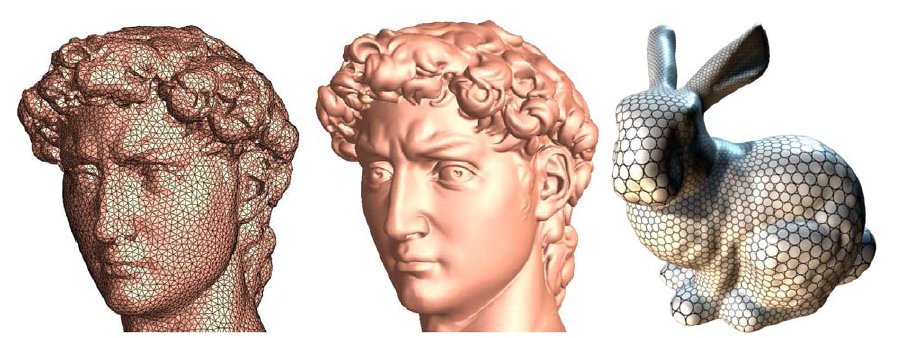
The ECE department will be offering four special topics
digital media courses in the
Spring 2010 semester. These courses cover
graphics
and visual computing (EE 7000-1),
GPU hardware (EE 7700-1),
game
algorithms (EE 7700-3),
and
digital
video and HDTV (EE 7700-2).
These courses are available to graduate students and also undergraduate
students who have completed 75 credits and have at least a 3.5 GPA.

EE 7000-1, Graphics and Visual Computing, will cover computer graphics algorithms, techniques, and applications for modeling, simulation, animation, rendering and other key elements of visual computing. Other topics include shape representation and modeling: how to store, represent, and render geometric objects; graphical user interface design, texture mapping, and environmental mapping and rendering. Broader applications in visual computing: shape deformation and morphing; collision detection; and shape comparison and retrieval. The course will be offered by Xin “Shane” Li.

EE 7700-1, GPU Microarchitecture, will cover GPU design, and include case studies of current NVIDIA products, almost-here future designs such as Intel's Larrabbee, and ideas for longer-range products. The course will look at advanced GPU programming techniques, including coverage of the pseudo assembly language documented by the manufacturers as well as the GPUs' true machine language uncovered by others. A question to be looked at throughout the course is the essential reasons for the differing designs of CPUs and GPUs, though both are multicore processors with vector instructions. These questions will be examined using visualization tools and code examples, including animations in which the GPU is used for both graphics and physics. The image to the left shows one such animation, in which balls bounce and roll off a half-cylinder platform. The course will be offered by David M. Koppelman.
Digital Video and HDTV (EE 7700-2) will cover fundamentals of digital video and high-definition TV. Topics will include basics of image acquisition and display, color science and color coding, image and video compression techniques and standards (e.g., JPEG, MPEG, and H.26x), video processing (e.g., filtering, sampling, interpolation, deinterlacing, and gamma correction), standard-definition and high-definition video standards, and digital TV broadcasting basics and standards. The course will be offered by Bahadir K. Gunturk.
EE 7700-3, Computer Game Algorithms and Networking. Computer games are widely popular, with online games capable of supporting tens of thousands of simultaneous players around the world. Making these games work quickly, fairly, and consistently is not trivial. This class will examine two engineering aspects essential for a successful game: algorithms and networking. Current games involve both areas, and both areas have questions and need for improvement open to further research. Algorithms determine, for instance, the actions of non-player characters. How to control these characters so that they act in a way that seems realistic to a player? How to control thousands of these characters? Supporting thousands of players in the same game entails high computation and bandwidth demands. Scaling up to ever larger numbers of players poses large challenges in networking. It also raises new issues; for instance, if a game distributes computation over player machines to avoid a bottleneck at a central server, then new opportunities to cheat arise that must be countered. Topics include game algorithms and techniques including some of the following: tournaments, game trees, path finding, decision making, and the modeling of uncertainty. Networking topics to be covered include networked applications, compensating for resource limitations, and cheating prevention. The course will be offered by Jerry Trahan.